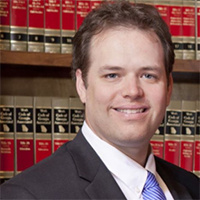Hephzibah Estate Lawyer, Georgia
Sponsored Law Firm
-
 x
x

Click For More Info:
-
Faulkner Law Offices, LLC
331 Washington Avenue Marietta, GA 30060» view mapEstate Law Plan For Your Future In Life And Business
Let Stan Faulkner, lead counsel at Faulkner Law Offices, help with your family's estate plan or business law strategy. He can streamline the entire legal process for you.
800-793-1121
Richard Hays Goolsby
✓ VERIFIEDDivorce & Family Law, Criminal, Wills & Probate, Accident & Injury
Richard Hays Goolsby, Jr. currently practices law in both Georgia and South Carolina and is a proud member of both bar associations. Richard, Jr. foun... (more)
John Andrew Donsbach
Wills & Probate, Corporate, Franchising, Business Organization
Status: In Good Standing Licensed: 25 Years
James T. Plunkett
Construction, Real Estate, Wills & Probate, Franchising, Banking & Finance
Status: In Good Standing Licensed: 37 Years
Stephen E. Shepard
Wills & Probate, Employment, Divorce, Personal Injury
Status: In Good Standing Licensed: 48 Years
David C. Jones
Real Estate, Trusts, Estate Planning, Business Organization
Status: In Good Standing Licensed: 27 Years
Scott J. Klosinski
Commercial Real Estate, Estate Planning, Collection, Bankruptcy & Debt
Status: In Good Standing Licensed: 38 Years
Fred M. Kennedy
Wills & Probate, Family Law, Bad Faith Insurance, Medical Malpractice
Status: In Good Standing Licensed: 47 Years
Frank W. Allen
Real Estate, Wills & Probate, Employment Discrimination, Family Law, Collection
Status: In Good Standing Licensed: 55 Years
William R. Mccracken
Lawsuit & Dispute, Social Security, Estate, Accident & Injury
Status: In Good Standing
 AboutFaulkner Law
AboutFaulkner Law Practice AreasExpertise
Practice AreasExpertise

